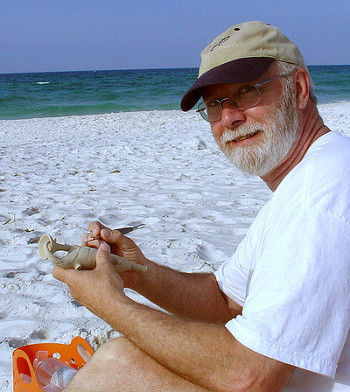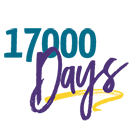This is a guest post by Fabian Kruse of The Friendly Anarchist.

If we get easily distracted by temptations like Facebook and Twitter, how much harder would it be to stay focused when working on a chicken bus in Guatemala, a crowded airport in France or the most beautiful beach you have ever been to?
It’s true: Working on the road will bring about some special challenges. As a lifelong traveler (and a permanent nomad since late 2008), I have had to take on quite a few of them. But while each of these challenges has been unique, I noticed a pattern emerging: There are a couple tricks to get more stuff done in less time, all while maintaining the same level of quality. And while I have used these tricks mainly for my work on the road, all of them can easily be applied by creative workers anywhere, nomadic or not!
Sounds too good to be true? Find out for yourself and let me introduce you to some cornerstones of my personal approach to super-efficiency!
1) Your Reasons Why
Finding your reasons for doing a certain thing isn’t something most productivity consultants care about. They only want to see a higher output, no matter what. Consequently, they focus on certain methods and techniques to cram more work into the hours of the day. While this will probably make these days more stressful and busy, it often won’t lead to better results. In reality, it makes many people dread their job so much that the quality of their work will suffer.
Here’s how I see it: If our work is hollow and meaningless, concentration, focus and excellence will be hard to attain. The remedy can be found in exploring the two sides of motivation, extrinsic and intrinsic motivation.
Extrinsic motivation refers to the performance of an activity in order to attain an outcome, like earning a nice salary. Unfortunately, studies have shown that monetary incentives alone don’t always lead to better performance, especially in the long run. For many aspiring nomads, though, being able to lead a life of travel can be an important motivator: Some of you might want to surf the greatest spots around the planet. Others would rather sip Cuba Libres at some beautiful beaches in the Caribbean. Yet others would love to explore the most vibrant cities of Europe.
All of these things have something in common, though: They can be wonderful rewards. Having these goals alone will take you far because there couldn’t be a better (extrinsic) motivator: You would probably be happy to do a bunch of (what I call) “senseless busywork” just to be able to finance your voyages. Fair enough.
But here’s the other side of this trick: If you really want to excel, you also need to have good intrinsic reasons to do the work you are doing: You have to enjoy it because it is meaningful and fun, you have to aim for mastery, and it simply has to be the “right” thing to do. If you want to become extremely efficient in what you are doing, never forget your true reasons why.
2) Ignore Everybody
This is another point with two different sides. First of all, accept that it’s okay to simply ignore everybody and do your thing. If you have identified the “reason why” for your travels and for the work you do, suppose it’s okay and just go with it, no matter what people say.
If you have family members traveling with you, be sure to plan with them. But learn to listen to advice without getting discouraged. Remember what cartoonist Hugh MacLeod wrote: “You don’t know if your idea is any good the moment it’s created. Neither does anyone else.” The only way to find out is to give it a try!
The second side of “ignoring everybody” is more relevant for your practical day-to-day activities: Your working time has to be sacred! As there are so many distractions (especially when traveling, but also in cubicles around the world!), it’s crucial to learn to focus whenever you sit down to get things done.
The good thing about focus is that it’s something you can learn. If you manage to find true concentration for just ten minutes today, you can practice and extend that time bit by bit. To make it easier, use technical support, like ear buds. (A simple way to show that you are not up for conversation when in a public place is to put on headphones. Even if you don’t listen to any music, wearing them is a clear signal for the people around you.)
Also, consider training your mind with regular meditation. Studies have shown that simple sitting meditation allows you to stay more focused, even if you practice it for just a couple of minutes each day. (Apart from that, meditation will also be good for your soul, but that’s a whole different topic!)
3) Avoid the Nerd Trap
Let’s face it: Testing, inventing and constantly optimizing productivity systems isn’t a sensible use of your time, unless you are a productivity consultant. GTD can be interesting and all these shiny tools (and apps and gadgets and blogs!) that cover the topic are extremely tempting. For the secret nerd inside of us, it can be huge fun to spend days reading about other people’s approaches to keeping their to do lists. Unfortunately, it won’t help us to get things done! Our time is probably spent better watching funny cat videos on Youtube. (Have you seen this one?)
Consequently, when trying to find tools to become more productive, only read about the basics; then choose one that appeals to you and get going! Learn to use it for your actual work (opposed to applying it merely in an artificial GTD optimization mode) and stay with it.
The worst thing you can do is to become yet another productivity nerd. Believe me, I’ve been there (I even spent weeks creating a productivity toolbox, researching a myriad of programs, apps and websites), and while that was a lot of fun, it’s probably not a productive thing to do for most of you. (Unless you plan to create an even better toolbox. But then, kiss your nights goodbye!)
4) Limit Your Time
Parkinson’s Law states that “work expands so as to fill the time available for its completion.” In practical life, this means that once you assign eight hours to the task of writing a blog post you will probably need them. (Ahem.) If you only have four, on the other hand, you will probably be more focused and get it done in half of the time.
In my own experience, having fixed and not negotiable deadlines is a perfect procrastination buster. If I feel that there is still “plenty of time” I might spend some of it surfing the web and chatting away on Twitter. But if my time is extremely limited, I will work much more concentrated.
An easy and fun way to set deadlines as a productive nomad is to organize trips in the afternoon and make appointments with friends and fellow travelers. The afternoon adventure will then be a great reward for your focused work in the morning. (If you’re a night-owl, simply work right before going to bed, so sleep will be your reward.)
5) Mighty Micro Productivity
People often overestimate the importance of having long, uninterrupted chunks of time in order to get any work done. Sure, a free and open day is something marvelous to be creative, but even tiny chunks of time can take you far! At this very moment, there are probably many items on your to do list that could be advanced by just dedicating a couple of minutes to them.
Consequently, embrace micro productivity! The next time you find yourself with an unexpected 10 or 20 minutes of free time before some other planned activity, use it to work on a thing – particularly a thing you don’t enjoy doing so much: Make some of those client calls you have put off for weeks, respond to (or archive!) a couple of old emails from your inbox, start cleaning up your workspace. As you know that you will only work on it for a short moment, resistance will be lower. And after the session you might be surprised how much you got done.
Just Do It!
Still here? What are you waiting for? These unexpected 10 or 20 minutes might be just here and now. Put them to use, then switch off and relax a bit! And if you’re up for a deeper look into productivity on the road, please feel free to check out Productive Anywhere!

Cool article. Certainly the bigger the reasons the more likely we are to take bigger action. I think that planning is certainly important especially when training the unconscious mind to focus on what we need to work attract what we want. Goals have to be inspiring and planned to set the motion of success alight. Nice one 😉
Exactly! I can’t tell you how much time I’ve spent trying to make myself do something or scare myself into being productive. Inspiration and planning work much better. Thanks!